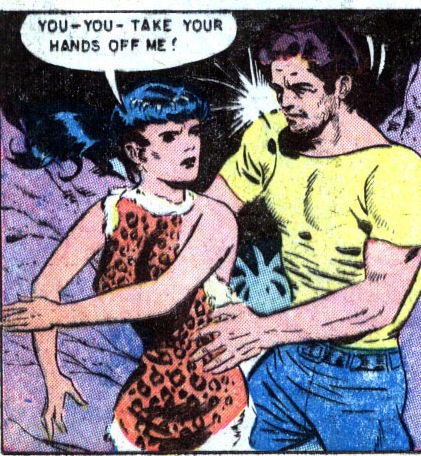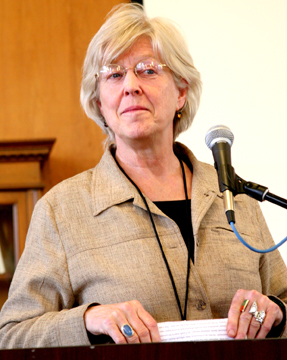The Truth Will Come Out: An Interview With Jill Brenneman and Amanda Brooks

Interview co-authored by Josephine and Caty
Content warning—the following contains descriptions of extreme injuries and rape suffered by two sex workers due to a campaign of violence by an abusive client, as well as an account of child abuse.
Jill Brenneman and Amanda Brooks are veterans and heroines of the sex workers’ rights movement. As a teen, Brenneman suffered years of of brutal abuse in which she was coerced into working as a professional submissive. In the early aughts, Jill made an amazing conversion from membership in the prohibitionist movement to sex workers’ rights activism. She set up SWOP-EAST from the remains of an anti sex work organization she’d led. SWOP-EAST grew to be one of the most vital sex workers’ rights organizations of the era. Brenneman was also a frequent contributor to early sex workers’ rights blogs like Bound Not Gagged.
Amanda Brooks is the acclaimed author of The Internet Escort’s Handbook series, the first one of which she published in 2006. They served as an important resource for escorts advertising online back when there were few other how-to sources on the topic. She was also one of the earliest escort bloggers starting in 2005, writing entries brimming with eloquence and common sense at After Hours.
The two fell off the map recently.
When they returned, we were shocked to read Brooks’ blog post about what they’d endured: a campaign of terror by one of Brooks’ clients, affluent lawyer Percy LaWayne Isgitt. Isgitt—Brenneman and Brooks call him “Pig”—caused both Brenneman and Brooks severe brain injuries when his arrogance and negligence piloting a plane the three of them were in led to a catastrophic “hard landing.” Despite the fact that Brooks was clearly incapacitated and near death, Brenneman had to browbeat Pig into taking her to the hospital the next day. Once Brooks was checked in, Pig fraudulently signed in as her relative and attempted to control her treatment. Despite her still severely injured state, Brooks continued to see Pig as a client for two sessions after her hospitalization, in desperate need of money to pay for medical bills. When she finally tried to break ties with him, he hired people to make threatening phone calls to both women. In response, Brooks went into hiding, so Pig sent men to stalk, rape, and beat Brenneman on a number of occasions, trying to discover Brooks’ location. Neither the police, nor the many medical facilities that misdiagnosed them along the way, nor the personal injury lawyer they hired were any help to the two women against a deranged, abusive man with wealth and social capital.
The injuries Brenneman suffered from the plane crash combined with the injuries she sustained from the attacks led to the fatal exacerbation of her previous medical conditions. Her doctors have told her she has very little time left to live.
This story illustrates the insidious way institutions empower abusers to commit violence against sex workers. The only people they can often rely on in these situations are other sex workers. You can read the original account here and donate to their Giftrocket account using this email address: abrooks2014@hush.com. Donations will be shared equally between them to cover their respective medical costs.
Amanda, you write in your blog post, in reference to Jill’s past abuse:
To those who doubt, her stories are true. They’re things only men would think up and most of the time, it’s the mundane details that stand out the most to both of us. I’ve read stories from so-called trafficking victims who describe ridiculous “Satanic” rituals or elaborate set-ups. The truth is, the men who were Bruce’s [Jill’s captor’s] clients weren’t very bright, in my opinion, and they had a lot of the same stupid fantasies and beliefs that most vanilla clients do—only much darker and violent.
This factor plays into your story of how Pig hurt you both, too. There’s a voyeuristic undertone to the way people listen to stories of abuse. People expect the “elaborate set-ups,” and yet abuse is usually no different than other misbehavior in kind, if not in degree—abusers do it because they want to feel big, or because they care about themselves a lot more than they care about anyone else. How do you think the fact that often stories of abuse are mundane and banal makes it harder for victims to get help?
Jill Brenneman: People don’t want to believe the mundane stories, they want to believe the exotic stories. Like a wife who gets hit. Unless she’s put in the hospital, no one cares. Or she returns home because she has children. But the trafficking victim imported from Estonia gets all the attention.
Amanda Brooks: Because they’re too believable or not dramatic enough. [Pig] raped me twice, yet it’s not something most people acknowledge as rape. It even took me a while to realize that it was rape, despite how I felt about it. People like to parse situations down to the point where the only way it’s “real” is if it’s outlandish.
Jill, you were held captive by a sadist for three years in your teens, and forced to endure unimaginable abuse. As an adult you returned to sex work voluntarily to make a living, and then you went through this ordeal with Amanda at Pig’s hands. What unusual problems have you faced as a sex working abuse survivor? What can we do as a movement to make things better for the abuse survivors among us?
Jill: The ordeal that Amanda went through made me livid and still does.
Working as an abuse survivor led me to more abuse. I learned from [my captor and abuser] Bruce in the 80’s. Bruce was a cliche master sadist. There was never a sense of love or affection between him and I. I was an object. I did what I was was told. I was taught how to relate to clients. I overapplied this training as an adult. I willingly went back to work as a professional submissive. This was a place that I did not belong. Despite there being a 19 year gap between [my captivity and going back to] sex work, I did not belong in sex work —especially as a professional submissive. I needed the money to pay for very expensive subcutaneous blood thinners because of a clotting disorder. I needed to pay the rent, the car payment, food, care for the dog, etc. I took the work that came. I started off with two old pictures of myself, no website, no reviews, and took some pro-sub clients to make money when it was tight. I did not belong in sex work. I was still far too impacted from previous abuse to be doing it but I had no choice, I needed the money.
The most important thing the movement needs to do is work on decriminalization so that we have options.
Amanda: The movement truly doesn’t have the power to deal with this, unfortunately. Until the laws are changed, we never will.


